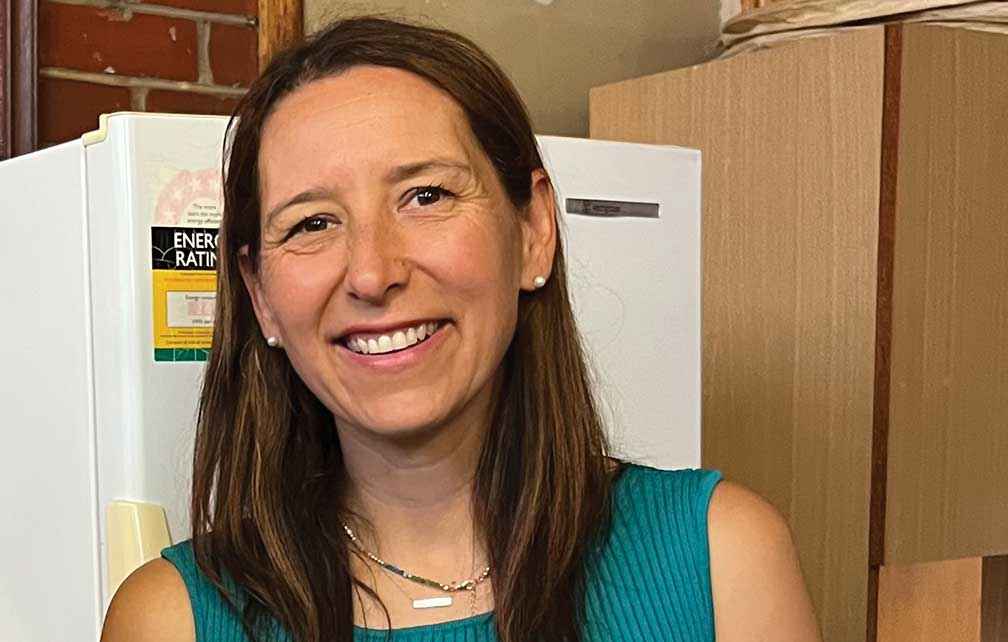Victorian Landcare Magazine - Winter 2024, Issue 87
After a remarkable 26-year tenure as the co-founder and secretary of the Panyyabyr Landcare Group (PLG), seven years ago Lisa McIntyre transitioned to the role of Landcare facilitator. She now supports six neighbouring groups covering approximatively 284,000-hectares of Western Victora. Lisa sees herself as a collaborator – encouraging people to get involved in the big picture. In 1994 she encouraged PLG members to contribute ideas to a sub-catchment plan. This has paved the way for many impactful local projects.
Lisa’s approach to Landcare is about balancing a dual focus on productivity and conservation. She is passionate about demonstrating the care farmers have for their land – showing that a productive farm and a healthy natural environment can co-exist. She has organised practical demonstrations and field trials on pasture management, whole farm planning, weed control, soil health, farm forestry, bioblitzes, integrated pest management, carbon accounting and direct seeding, which has stimulated lots of local interest and led to the adoption of new techniques.
Lisa’s commitment to research and education underpins her work. She assists members of the group to run comprehensive long-term fox and rabbit control programs, and has sourced funding for community salinity mapping, catchment planning, farm-dam enhancement, protecting threatened species, biodiversity corridors and surveys. Lisa coordinated an extensive revegetation project along the Wannon River and its tributaries that spanned 12 farms.
Lisa serves as a vital link between agencies and the Landcare community in times of crisis and has been on hand for drought, flood and bushfire. Her holistic approach to community engagement is reflected in the events, farm walks, bus tours and group meetings that she organises. Everyone is welcome and there’s always time for social interaction.
According to Lisa, Landcare is a point of connection in her rural community.
“We find, especially when people get older, that it can be easy to lose touch. Landcare events that are social and not just about getting work done are a way of checking in with people and building important social connections. Then, in times of crisis, our knowledge of the community means we can help agencies and community groups make sure the help goes to where it is needed,” Lisa said.
A seasoned writer of funding submissions, project reports and plans, Lisa has played a key role in securing resources for the group. She also writes an informative monthly newsletter that has become a must-read in the local area.
Lisa has observed a growing interest in regenerative agriculture across the region and will use her fellowship to undertake a study tour of Tasmanian beef, sheep, and dairy farms known for their cutting-edge sustainable agriculture practices. The tour will be led by a member of the Regenerative Agriculture Network of Tasmania and will also include training in monitoring techniques.
Regenerative agriculture practices, including agroforestry and water management techniques, contribute to the resilience of farms in the face of climate variability. Lisa is excited about the prospect of bringing this new knowledge back to her community.
Marissa Shean’s love of Landcare runs deep – it was her first job when she finished university. More than 20 years later she’s working with multiple Landcare groups in some of the most isolated parts of Victoria. Marissa started her Landcare journey in 2000 when she took on the role of Southern Mallee Landcare Facilitator, working out of a small office in Hopetoun. Since 2019 she has been the South-Eastern Mallee Landcare Facilitator working with eight Landcare groups from Nullawil to Sea Lake. She has played an instrumental role in planning, developing and delivering a wide range of Landcare projects, including the Uttiwillock Wetland environmental study, and large-scale rabbit control works.

Above: Marissa Shean is proud of the achievements of community Landcare in the Mallee.